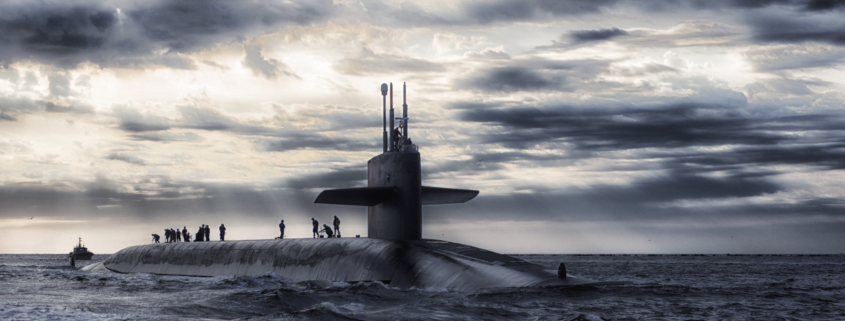Submission By: Dave Jonas, Partner, Nuclear Law
The AUKUS pact is a big deal indeed. What makes it so groundbreaking? It is a trilateral defense agreement between Australia, the United Kingdom and the United States. As reported by The Economist, “Australian and British sailors have been visiting American submarines for decades. It would be hard to imagine closer allies than their three countries. But as those sailors approached the engine room, they would come to a watertight door that even they could not pass. For beyond it lay one of America’s most sacrosanct technologies, shared only with Britain in 1958: nuclear propulsion. The AUKUS pact throws that door open, pointing the way to a new phase in the West’s competition with China.”
As one of the few non-naval nuclear propulsion personnel to have been invited beyond that watertight door and into the nuclear propulsion power plant, I would say that the secret is not so much nuclear propulsion as stated by the Economist, but rather the US Navy’s “secret sauce” for nuclear propulsion. The Navy’s recipe for naval fuels allows the reactor to last the life of the vessel. If you compare that for example, to French nuclear-powered submarines, those must be refueled about every decade. When you think about it even for a moment, that is a highly significant military advantage since other nuclear navies must refuel their nuclear-powered vessels every number of years depending on the technology they use. Note that replacing the nuclear fuel is not like pulling into Costco to fill up with gasoline. It means that the vessel must be in drydock for often more than a year during which time it is out of action and also presents a clear target if that refueling transpires during wartime. The Navy has guarded this secret jealously and effectively for many years. Part of that “secret sauce” goes well beyond the fuel and associated long-lived nuclear reactor cores. It is actually more about the culture of high standards for operational effectiveness and nuclear safety coupled with a commitment to selection and training of professional operators who rigorously live to those standards.
While some may fret that the AUKUS deal may present opportunities for nuclear weapons proliferation, I would caution that such concerns are overblown. Australia is a non-nuclear weapons state (NNWS) under the Nuclear Nonproliferation Treaty (NPT) and has promised not to make nuclear weapons. Similarly, the U.S. and U.K. are nuclear weapons state (NWS) parties to the NPT and they have promised not to share nuclear weapons technology with NNWS such as Australia. In any event, the submarines in question will not be armed with nuclear weapons (they will be attack submarines rather than ballistic missile submarines) and while the naval reactors at issue will certainly contain highly enriched uranium (HEU) those units will be welded shut.
It will be for Congress to provide legislation to smooth the path for technology sharing since domestic and international law/agreements typically disfavor transfers of nuclear technology. Plus, the technologies to be shared go well beyond naval nuclear propulsion, although the submarines and associated propulsion have dominated the headlines. The deal also involves other cutting-edge innovations and technologies to include cyber, robotics, quantum computing, artificial intelligence, long range missiles, hypersonic weapons and large unmanned submersibles. The defense companies in each of the three states will have to work closely together and to some extent may involve merging certain capabilities although how that happens is anyone’s guess at this point. However, given the fact that China’s navy is now the largest in the world, it makes sense for the three allies to seek economies of scale in submarine construction, which, if nothing else, at least lowers the unit cost per vessel if more are being ordered. But U.S. and U.K. shipyards are already at capacity for submarine construction so it remains to be seen how additional submarines can be constructed to send to Australia.
The biggest risk to the deal appears to be the fact that it will take decades to reach its goals. This means that it will have to survive political changes in leadership in all three states. Hopefully, the value of the AUKUS deal will remain clear and paramount as the primary goal would seem to be stability in the Indo-Pacific region and deterrence of China.
Partner Dave Jonas is recognized as one of a handful of experts, worldwide, in National Security and Nuclear Nonproliferation Law, and continuously monitors domestic and international movement within the industry.
*Links embedded will direct you to the original article of that news organization. Fluet is not affiliated with any of the news organizations listed, nor is Fluet responsible for external content.


